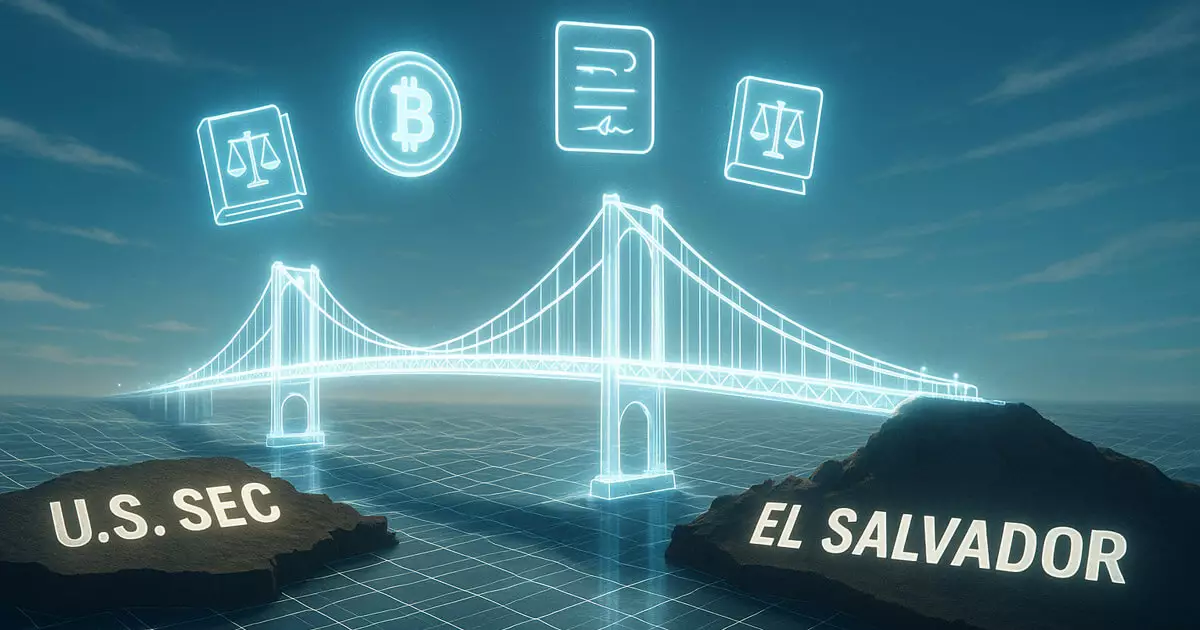The U.S. Securities and Exchange Commission (SEC) is not simply playing catch-up in the rapidly evolving digital asset landscape. Instead, it is attempting to redefine its role as a proactive regulatory body through an intriguing collaboration with El Salvador’s National Commission of Digital Assets (CNAD). This partnership represents a significant shift from the country’s historically stringent and often stifling regulations surrounding cryptocurrencies. By exploring a regulatory sandbox specifically designed for tokenization, the SEC is signaling a newfound willingness to embrace innovation and adapt to an industry that thrives on disruption.
Understanding Tokenization: A Step Beyond Traditional Regulations
Tokenization—the process of converting rights to an asset into a digital token on a blockchain—is being scrutinized by the SEC, particularly through its proposed pilot initiatives. By utilizing real-world scenarios and data, the SEC aims to gather invaluable insights that could bolster its regulatory framework. This is not merely an exercise in due diligence; it’s a critical strategy for future-proofing regulations in a dynamically expanding market. The potential benefits extend beyond regulatory clarities; they provide an opportunity to reengage smaller players in an industry increasingly dominated by larger entities guided by opaque regulations.
Observing scenarios such as fractional property ownership and token-based fundraising restores balance to an ecosystem that needs additional voices. The costs for these pilot programs are intentionally set at an accessible $10,000 to ensure that small-scale participants aren’t priced out of innovation—a sensible move in a space where the rich have often had the upper hand.
Breaking Down Barriers: A Global Perspective
The SEC’s willingness to engage on an international front with the CNAD is particularly notable against the backdrop of America’s typically insular approach toward regulation. This cross-border initiative carries significant implications for the broader international regulatory landscape. It’s a bold statement that acknowledges the increasingly global nature of digital assets and the inevitability of collaboration in regulatory efforts.
With this collaboration, the SEC is not only committing to a more inclusive regulatory model but also recognizing that innovation does not adhere to national borders. The implications are monumental; by allowing U.S. firms to hold tokenized property ownership in El Salvador, the SEC could foster a more interconnected market, which is crucial for credibility and stability.
A Paradigm Shift in Crypto Policy
Moreover, since the dawn of the Trump administration’s renewed focus on digital assets, the SEC has shifted gears by reviewing antiquated regulations and ceasing certain enforcement actions that previously stymied progress. By launching crypto policy roundtables, the agency is actively seeking to bridge gaps in areas like asset custody and broker oversight. This willingness to adapt highlights a growing recognition of the unique challenges presented by the digital asset ecosystem.
The SEC’s collaborative approach serves as an encouraging precedent, demonstrating that lifeless bureaucratic structures can evolve. As the agency embraces this newly minted philosophy, it seeks not only to protect investors but also to facilitate innovation across borders—a dual mandate that is essential for the future of a thriving digital economy. In the end, this seismic pivot may well provide the foundation for a robust regulatory environment that fosters both investor confidence and market innovation.















